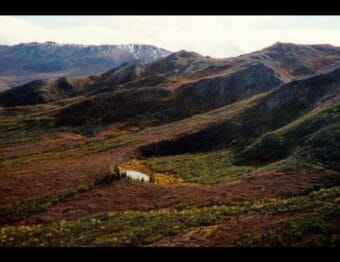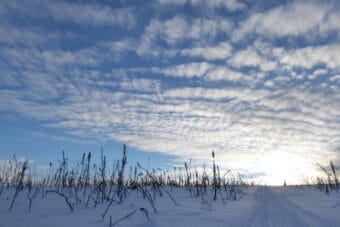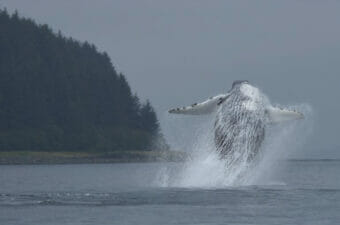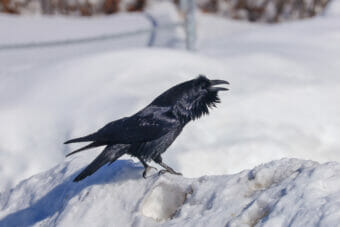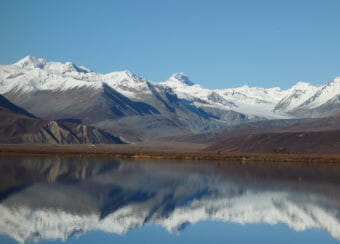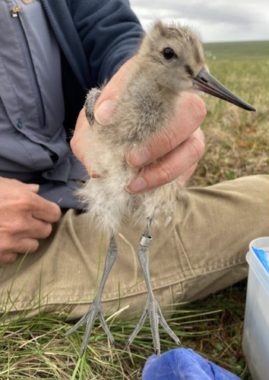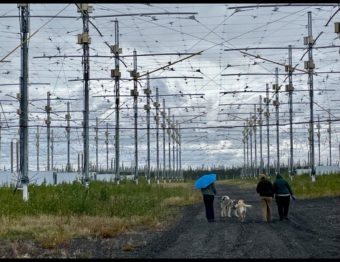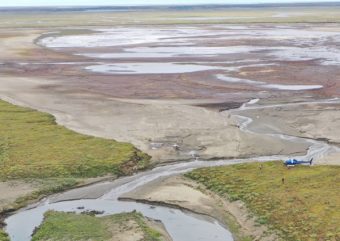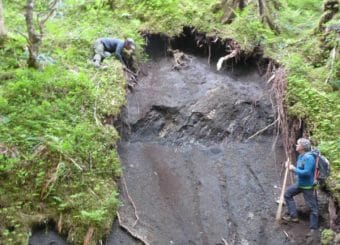For years, scientists have wondered why North America’s highest mountain is not a volcano.
Ned Rozell, University of Alaska
Ned Rozell is a science writer with the Geophysical Institute at the University of Alaska Fairbanks.
A 1783 eruption in Iceland may have been catastrophic for northwest Alaska, scientists say
For eight months in 1783, Laki volcano spewed lava and belched noxious fumes into the atmosphere. One-quarter of Iceland’s population died.
An old friend returns to Icy Strait
There was a time when biologist Christine Gabriele wondered if she’d ever see one of her favorite creatures again.
Making sense of raven talk
Researchers have identified up to 116 different vocalizations from ravens.
Alaska’s small glaciers are on their way out
Researchers used high-performance computers at UAF to predict the fates of 215,547 glaciers.
A bird the size of your fist flew from Alaska to Tasmania in 11 days
Bar-tailed godwits fly over vast, lonely oceans to nest invisibly in bumps of tundra vegetation.
At open house, scientists explain what HAARP can — and can’t — do
It’s a facility that some claim has caused caribou to walk backward.
Harry Potter Lake, once too big to see across, vanished in a day
Drained lake basins make up more than half of the Arctic coastal plain, the part of the Alaska map that most resembles Swiss cheese.
A difficult, dynamic place: Lessons from nearly 50 years studying Glacier Bay’s outer coast
Southeast’s tall young mountains, giant earthquakes, green rainforests and large bears have kept University of Alaska geologist Dan Mann coming back for nearly half a century.
